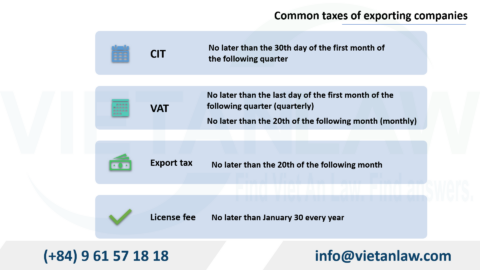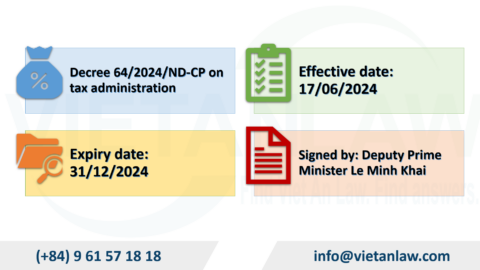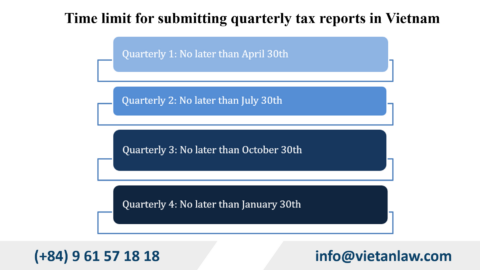Social insurance is the right of employees to be guaranteed to compensate part of their income in certain circumstances. When participating in social insurance, the salary paid for social insurance in Vietnam is an issue that many workers and businesses are concerned about. In this article, Viet An Law will present more clearly the latest salary paid for social insurance in Vietnam.
Social insurance means the guarantee to fully or partially offset an employee’s income that is reduced or lost due to his/her sickness, maternity, occupational accident, occupational disease, retirement or death, on the basis of his/her contributions to the social insurance fund. Social insurance is divided into two types:
Depending on each type of social insurance, the benefits included will also be different. For example, voluntary social insurance will not cover sickness, maternity, work accidents, or occupational diseases like compulsory social insurance.
Regulations on social insurance salaries of employees
Regulations on the monthly salary of employees for compulsory social insurance payment are specifically stipulated in Article 89 of the Law on Social Insurance and in Article 17 of Decree 115/2015/ND-CP.
Accordingly, the monthly salary that employees use to pay compulsory social insurance will be divided into the cases listed below:
Paying social insurance is the right of the employee and the obligation of the employer according to the Law on Social Insurance.
Pursuant to Clause 2, Article 5 of the Law on Social Insurance, it is stipulated that the compulsory social insurance payment rate is calculated on the basis of the monthly salary of employees.
According to Clause 2, Article 89 of the 2014 Law on Social Insurance, the monthly salary for compulsory insurance payment includes:
According to Clause 26, Article 1 of Circular 06/2021/TT-BLDTBXH, the monthly salary base for paying compulsory social insurance does not include:
The contribution level is deducted from the monthly salary and is distributed as follows:
Note that you do not have to pay compulsory social insurance
According to the provisions of Point 2.6, Clause 2, Article 6 of Decision 595/QD-BHXH dated April 14, 2017, the minimum salary for compulsory social insurance payment is for employees doing the simplest job or title. Under normal working conditions, the monthly salary paid for compulsory social insurance is not lower than the regional minimum salary at the time of payment.
According to the provisions of Decree 38/2022/ND-CP currently in effect, the monthly regional minimum wage is determined as follows:
| Region | Current minimum wage |
| I | 4,680,000 VND/month |
| II | 4,160,000 VND/month |
| III | 3,640,000 VND/month |
| IV | 3,250,000 VND/month |
In fact, many businesses are paying the minimum monthly compulsory social insurance, so adjusting the regional minimum wage will lead to an increase in the compulsory social insurance payment.
The maximum monthly salary for compulsory social insurance payment according to the provisions of Clause 3, Article 6 of Decision 595/QD-BHXH will be 20 months’ standard salary.
According to the current regulations of Decree 24/2023/ND-CP, the base salary from July 1, 2023, is 1,800,000 VND/month. Accordingly, the base salary is divided into two stages with two applicable levels as follows:
| Time | Salary | Legal basis |
| Before June 30, 2023 | 1.49 million VND/ month | Resolution 70/2018/QH14
Decree 38/2019/ND-CP |
| July 1, 2023 onwards | 1.8 million VND/ month | Resolution 69/2022/QH15
Decree 24/2023/ND-CP |
Thus, the maximum monthly salary for compulsory social insurance from July 1, 2023, to December 31, 2023, is 20 x 1.8 = 36 million VND/month.
According to Clause 2, Article 17 of Decree 143/2018/ND-CP, the one-time social insurance regime for foreign workers will be applied.
Therefore, based on Clause 6, Article 9 of Decree 143/2018/ND-CP, foreign workers participating in social insurance will be entitled to one-time social insurance upon request if they fall into one of the following cases: after:
Therefore, if after terminating the labor contract there is a need to withdraw one-time social insurance, the foreign worker can apply for benefits according to regulations.
According to previous regulations, male workers needed to pay social insurance for 35 years and female workers needed to pay for 30 years to receive the maximum pension. According to Article 56 and Article 74 of the Law on Social Insurance, the number of years of social insurance payment to receive a pension for male workers will change.
Under Article 4.2 Decree 135/2020/ND-CP, the retirement age for employees working under normal conditions will change as follows:
From July 1, 2023, the base salary is 1.8 million VND/month (before June 30, 2023, it is 1.49 million VND/month), accordingly, the maximum voluntary social insurance payment is equal to 22% of the salary. 20 times the base salary and divided into 2 timelines as follows:
If you need advice related to the salary paid for social insurance in Vietnam and using social insurance declaration services, please contact Viet An Luat for detailed support!






Hanoi Head-office
#3rd Floor, 125 Hoang Ngan, Hoang Ngan Plaza, Trung Hoa, Cau Giay, Hanoi, Vietnam

Ho Chi Minh city office
Room 04.68 vs 04.70, 4th Floor, River Gate Residence, 151 – 155 Ben Van Don Street, District 4, HCM, Viet Nam
SPEAK TO OUR LAWYER
English speaking: (+84) 9 61 57 18 18 - Lawyer Dong Van Thuc ( Alex) (Zalo, Viber, Whatsapp)
Vietnamese speaking: (+84) 9 61 37 18 18 - Dr. Lawyer Do Thi Thu Ha (Zalo, Viber, Whatsapp)
